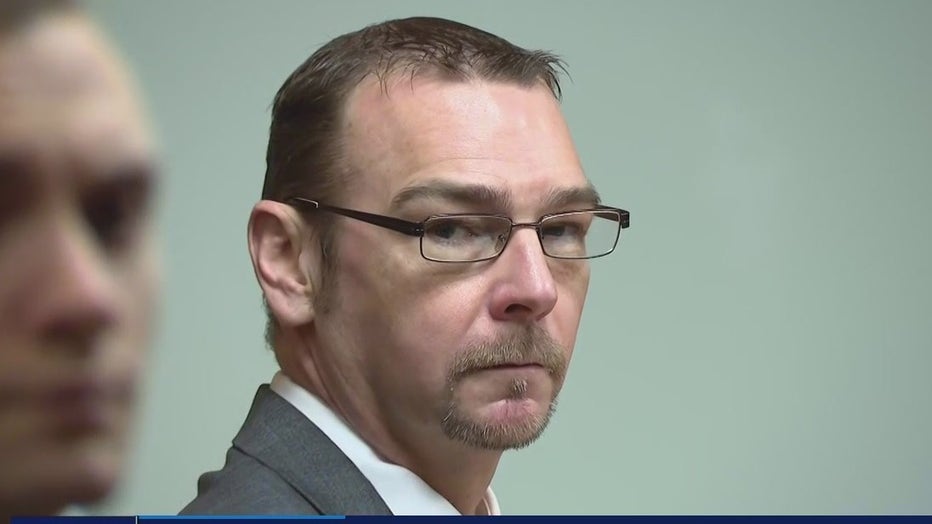James Crumbley wants new trial after Oxford High School shooting conviction

Oxford school shooter's father seeks a new trial
James Crumbley is seeking a new trial, with his attorneys arguing in court Friday deals the prosecution made with key witnesses guaranteed he wouldn't have a chance during his involuntary manslaughter trial years earlier.
OXFORD, Mich. (FOX 2) - James Crumbley, the father of the Oxford High School shooter, is requesting a new trial after he was sentenced to 10-15 years in prison.
A judge sentenced both James and his wife, Jennifer, to prison after juries convicted them of four counts of involuntary manslaughter stemming from the Oxford High School shooting.
Meanwhile, their son was sentenced to life without parole after pleading guilty to a long list of charges.
James appeared in court Friday as his attorney and prosecutors argued for and against a new trial, respectively.
Judge Cheryl Matthews said she expects to issue a response to the request within a month.

James Crumbley at his criminal trial on March 7, 2024
The backstory:
James and Jennifer's son brought a gun to school and killed four classmates on Nov. 30, 2021, when he was 15.
After the shooting, the parents fled to Detroit, where they were found hiding in an art studio.
As James' case moved through the court system, it was revealed that he purchased his son a handgun as a Christmas gift just days before the deadly shooting. That firearm was kept unlocked in the family's home.
The parents also declined to bring their son home from school after they were called to the school just before the shooting. According to court testimony, school employees reached out to them after discovering violent drawings their son drew on a worksheet. This followed their son getting caught looking up bullets while in class.
Jennifer seeks new trial
Jennifer is also seeking a new trial.
Dig deeper:
Jennifer's attorney, Michael Dezi, argues that the prosecution committed a violation by not revealing a proffer agreement between the prosecutor's office and two key witnesses in the case. According to Dezsi, he believes the proffers provided immunity to school employees Nick Ejak and Shawn Hopkins, despite the prosecution saying they did not.
Ejak and Hopkins met with the Crumbleys just hours before the school shooting on Nov. 30, 3021, after their son drew disturbing images on a worksheet. They testified about that meeting.
Dezsi said the testimony, which he argued was largely subjective, helped convict his client.
"This is Mr. Ejak testifying that he had an expectation that they would be leaving from the meeting with their son. He said, ‘It seems a little odd based on my experiences,’" Dezsi said. "So, they were trying to lay a predicate that would satisfy the gross negligence standard that didn't come from anywhere else in the trial, because that meeting is where the prosecutors say Mrs. Crumbley should have done something or taken her son."
Judge Cheryl Matthews pushed back on this claim, saying that Jennifer confirmed what happened in that meeting during her own testimony.
"There's no evidence contradicting what they said, and your client's testimony matches what they said," Matthews said.
Dezsi also expressed concerns that the prosecution did not share that Ejak and Hopkins would not be charged until after the Crumbleys were convicted.
"When you have an issue situation like this, these witnesses are going to do what they need to do. They're going to say, ‘Oh, I think they want me to be a little bit more helpful, I think they want me to establish this fact a little better,’" Dezsi said.
James' defense has referenced the same reasons for why he should receive a new trial or be acquitted.
Jennifer also sought to have the Oakland County prosecutor removed from her case, a motion that was denied.
The other side:
Prosecutor Marc Keast argued that Ejak and Hopkins were not offered anything in exchange for their testimony.
"There was no immunity," he said. "Nothing was offered for testimony."
The prosecutor said that his office spoke to Ejak and Hopkins after the shooting but did not intend to call Ejak to the stand. The decision to subpoena him to testify was only made after Jennifer's attorney during trial, Shannon Smith, expressed that she was going to call him to the stand, Keast argued.
Keast also said that Jennifer was convicted based on evidence of her actions - not what Ejak or Hopkins said.
"Jennifer Crumbley was convicted based upon her level of gross negligence because she was the cause of these four deaths and because what her son did was reasonably foreseeable to her. Nobody else. Her," he said. "Their subjective thoughts and views of that meeting have zero bearing on this case."
Though Dezsi said the testimony from the school employees was key in getting a jury to convict Jennifer, Keast argued that it wasn't.
"Our prosecution never hinged upon any perceived or real liability on behalf of Shawn Hopkins or Nick Ejak," he said. "Should they be successfully sued or successfully prosecuted some point in the future, that would have zero impact on Jennifer Crumbley's convictions because she was convicted based upon what she didn't tell anybody, what she what she knew, what she didn't do."
The Source: Court records and previous FOX 2 stories were used to report this story.


